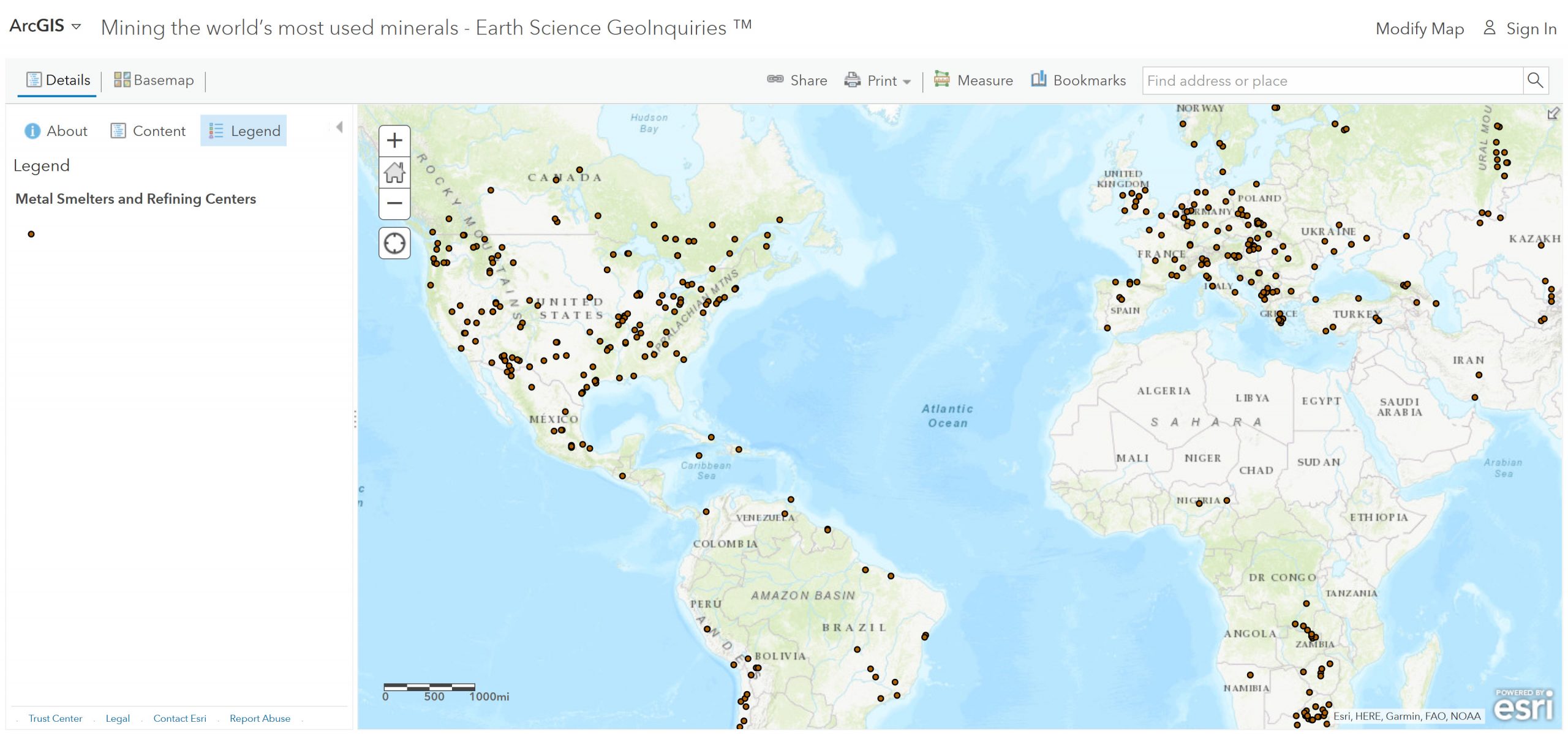Earth’s Landforms
3.3 Mining the World’s Minerals
Earthy Things You Surround Yourself With
Step 1: Go to the ArcGIS Online map, Mining the World’s Most Used Minerals, and explore the map.
Step 2: Click Modify Map, and then click the Contents button.
Step 3: Click the Bingham Canyon Mine bookmark to zoom to the most significant and deepest open-pit mine in the world.
Step 4: Measure the opening of the mine from the west rim to the east rim.
- How far is it across the opening?
- It is said that 9,000,000 people could fit into the Bingham Canyon Copper Mine. How many major league football stadiums would fit in this hole? [Using the 80,000-person capacity of the Dallas Cowboys’ AT&T Stadium, approximately 115 stadiums would fit in the hole.
Step 5: Switch the basemap to Imagery
Raw Materials We Need in Our Lives
Step 6: Each mine is the largest of its kind in the world. Click the bookmarks for each mine, and then click each pushpin to view additional information.
- What does each mine produce?
- Based on the information you learned from the Bingham Canyon Mine, what is the total amount of mineral resources an average person uses?
Why More Minerals Gather in Certain Places
Step 7: Change the basemap back to Topographic.
Step 8: Click the Home button to see the full extent of the map.
Step 9: Turn on the Copper Mine Density layer and the Sources of Minerals layer.
Step 10: Click the large box containing the word Copper to see how copper ore is formed.
- What are the top three areas that produce this metal for the world?
Step 11: Explore the other three metals (iron, aluminum, and gold) in the same way.
Step 12: Click the pin next to Lake Huron.
Step 13: Click the image of the popup, and explore the image and graph further.
- Which resource will we run out of soonest if we keep consuming it at today’s rate?
- What product will we need to redesign after we run out of its associated mineral?
How Long Can We Use Resources?
- If the recycling rate of chromium is doubled, what is the fraction of new material needed to make products that use chromium?


